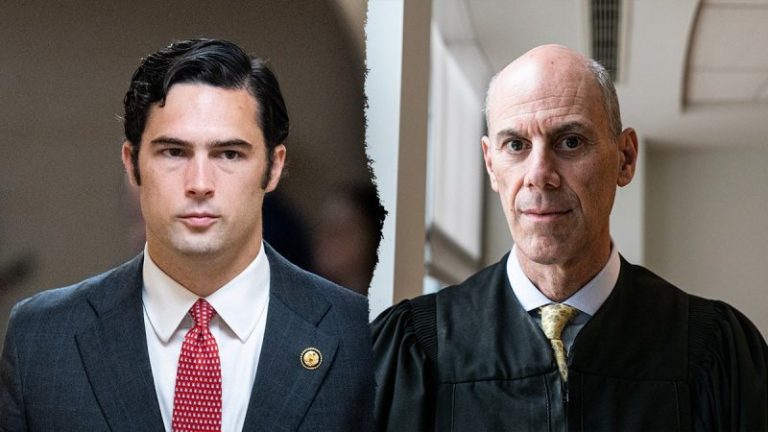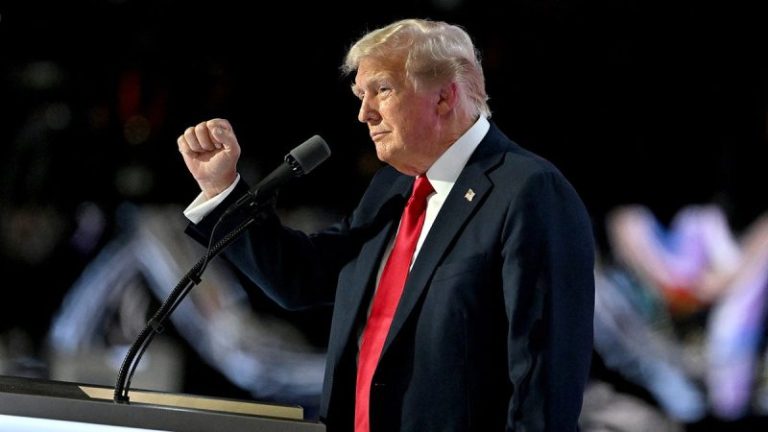Senate Democrats are beginning to peel off from their leadership, upping the ante for another government shutdown.
Disputes over Department of Homeland Security (DHS) funding, fewer restrictions on President Donald Trump’s authority and a possible headache with a previous, controversial provision could set the stage for another government shutdown.
Senate Republican and Democratic leaders don’t want to idly fall into another government shutdown, given that Congress just exited the longest closure in history a few short months ago. They have differing reasons, but for now, Republicans and Democrats agreed that the best option was to fund the government.
While the powers that be may have a momentary truce, it’s rank-and-file members who could drive Washington, D.C. to the edge of another shutdown.
Many of the issues lie within the DHS funding bill, which Democratic negotiators argued included several wins in their quest to rein in Immigration and Customs Enforcement (ICE). That bill passed through the House Thursday, with tepid support from House Democrats.
Only seven broke from their colleagues, a sign that Senate Minority Leader Chuck Schumer, D-N.Y., and his leadership team will have their work cut out for them in the upcoming week. And now, they’ll have to wrangle Sen. Tim Kaine, D-Va., who on Friday announced in a statement that he would not back the broader package.
Kaine wanted to see a much broader swath of constraints baked into the behemoth funding package, including safeguards against Trump’s war powers, the firing of federal workers, and DHS and ICE retribution against his home state.
‘We are not living in normal times,’ Kaine said. ‘The president is acting chaotically and unlawfully, and we shouldn’t give his deranged decisions the imprimatur of congressional approval by passing this legislation without significant amendment.’
Kaine’s defection is particularly notable, given that he was one of a handful of Senate Democrats who crossed the aisle to reopen the government last year.
A source familiar told Fox News Digital that there were up to 10 Senate Democrats who might not vote for the package or any funding bills from Republicans in general. That complicates the math needed to reach 60 votes.
Then there is Sen. Chris Murphy, D-Conn., who is a member of Schumer’s leadership team and the top Democrat on the Senate Homeland Security Appropriations subcommittee, who said he won’t support the DHS bill, arguing that it does not go far enough to restrict DHS Secretary Kristi Noem or Trump.
Murphy, who was involved in negotiations for the bill, said in a statement that he understood that his colleague ‘had a hard job — no new budget for DHS is going to cure all the rampant illegality happening within the department.’
‘Democrats have no obligation to support a bill that not only funds the dystopian scenes we are seeing in Minneapolis but will allow DHS to replicate that playbook of brutality in cities all over this country,’ Murphy said.
Senate Homeland Security Appropriations Subcommittee Chair Katie Britt, R-Ala., told Fox News Digital in a statement that ‘importantly, this bill contains no Democrat poison pills.’
‘I’m hopeful my colleagues on the other side of the aisle will do what’s right and not further politicize this process,’ Britt said.
Still, leaders on both sides are hopeful that the weight of the broader package, which will include defense funding, is enough to keep lawmakers in line and avoid a shutdown.
Sen. Patty Murray, D-Wash., who is the top-ranking Democrat on the Senate Appropriations Committee, argued that while the package was not exactly what she and Democrats had hoped for, it was good enough to support.
That’s because she and congressional Democrats were able to bake in their own restrictions on funding that would not be adhered to if Congress again has to turn to another short-term funding bill, known as a continuing resolution (CR).
‘While there’s a whole lot more I wish these bills would have addressed, these compromise bills protect critical investments in the American people, reject truly heartless cuts that would have undone decades of progress —and they are a significantly better outcome than another year-long CR,’ Murray said. ‘I look forward to ensuring they get signed into law.’










